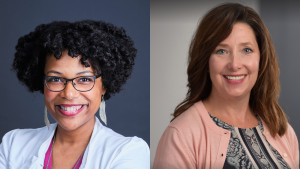Allies do a lot of important things in a workplace. They listen, support and empower and can drastically change the way a company functions for all of its employees — in a good way.
Shannon Schuyler, chief purpose and inclusion officer at PwC (Fair360, formerly DiversityInc Hall of Fame) dug deep into what being an ally looks like, what they can and should do and what work still needs to be done during her TED Talk-style presentation during the virtual Fair360, formerly DiversityInc Top 50 event on May 5, 2020.
“We often talk about how far we’ve gone around gender. And we do so without recognizing the privilege that we have as white women to talk about [gender equality] because women of color have not seen the same advancement that we have,” Schuyler said.
Too often, white people try to be superheroes instead of simply being a part of the solution, Schuyler explained. When she first came to that realization, she felt ashamed but quickly turned it into inner developments to become a better ally.
Schuyler also shared some statistics that helped her realized how big the gap still is between men and women and between white women and nonwhite women:
- There are fewer women in CEO positions at the Fortune 500 than there are men CEOs in the Fortune 500 with the first name James.
- As of January 2020, there are no Black or Hispanic female CEOs in the S&P 500.
- 59% of nonwhite women say they don’t even meet anyone within leadership positions in their company.
“Corporate America is biased,” Schuyler said. “It is not working for Black women or women of color, even more so than white women, and we need to acknowledge that … COVID-19 has put on an entirely different lens because we see it playing out every day. It is disturbing and dangerous to see the gap continue to grow. This pandemic has shown that those who were marginalized are even more marginalized.”
Schuyler went on to declare that allyship is using privilege and power to make equity and inclusion a part of everyone’s life. Schuyler also believes allyship is rooted in humility; in order to make a difference in the lives of marginalized people, allies have to become an instrument to change, which involves checking one’s privilege and giving up power.
“As white women, we have a choice to make. We can look at allyship as coaching, mentoring, bringing someone along or we can look at it as a way of tackling barriers,” Schuyler said. “We make sure we’re focused on using our power and privilege for somebody else.”

















